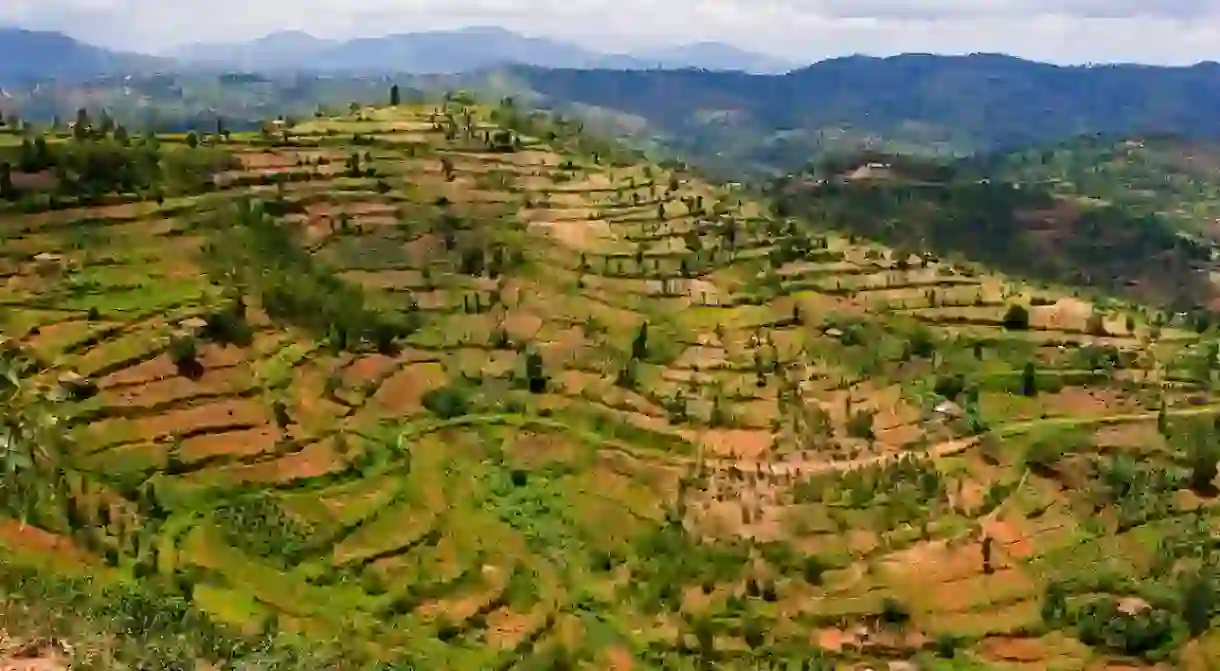Why Plastic Bag Smugglers Are on the Rise in This Country

Characterised best by its clean city streets and verdant green hills, Rwanda is consistently considered to be one of the most environmentally conscious countries on the continent, if not the planet. Rwanda, led by President Paul Kagame, owes that reputation in part to its plastic bag ban that was enacted in 2008. That’s right – plastic bags are not allowed in the country at all, and Rwanda’s sustainable outlook is wildly impressive.
As one of the country’s many public environmental measures, Rwanda’s plastic bag ban has garnered attention all over the world. In 2008, Kigali was designated as the cleanest city in Africa by UN-Habitat, and the country is keen to keep its green reputation. No plastic bags are allowed to be sold or produced in Rwanda, and they are also often confiscated at airports and border crossings with Uganda, Tanzania, and the Democratic Republic of Congo. The international community has applauded this innovative move, as very few countries around the world have enacted a comparable ban with similar results. Though countries like Bangladesh, Kenya, China, France, and Italy have worked to restrict, tax, or ban plastic bags, uniform success and enforcement has been limited.
Rwanda specifically went after bags due to country-wide flooding, livestock health issues, and problems with crops associated with massive amounts of plastic bags and general litter. This ban has undoubtedly made Rwanda a cleaner place to visit and live; streets are spotless, and terraced farms are free of roaming plastic debris. Children in public schools are taught about the bag ban, and learn about environmental preservation and conservation. Rwanda has even mandated a country-wide clean-up day on the last Saturday of every month, when citizens engage in community clean-ups and public works projects.

Unfortunately, the plastic bag ban is not beloved by all. Smugglers from the Democratic Republic of Congo cross into Rwanda with scores of plastic bags, sometimes taping them to their bodies, and hiding them under skirts and in the depths of luggage. This is not taken lightly, and the consequences for possessing plastic bags are severe. Though individuals with just one or two bags will have them merely confiscated, smugglers of hundreds will face detainment, jail time, and serious financial penalties. That hasn’t stopped smugglers though, as piles of plastic bags are spotted confiscated at the airport and border crossings daily. Many smugglers believe that the rewards outweighs the risks, as the demand in Kigali is high for businesses that allegedly purchase the bags to attract customers.
Additionally, authorities sometimes conduct random searches of Rwandan businesses, and if a business in Kigali or around the country is caught selling merchandise in plastic bags, the merchandise is confiscated, heavy fines are imposed, and, at times, the business is shut down. Recently, Ndoli’s, a popular supermarket in the Remera neighborhood of Kigali, was caught selling bread in plastic bags, and the owner was fined and asked to write an apology letter to the city of Kigali.

Though many merchants recognise the negative environmental implications of plastic bags, they have also cited their own business needs. Bakers have noted that bread decays quicker in paper bags than in plastic ones, and produce sellers complain that wet or fragile produce becomes bruised or soaks through paper bags. Quoted in an article for The Straits Times, Ndoli’s owner Emile Ndoli noted that, ‘What Rwanda is doing is 100% correct, but I’m also a businessman and I want a permanent solution which won’t involve losing money.’
The government is working hard to curb the illegal smuggling of plastic bags and, even though it might be on the rise, Rwanda still manages to be one of the cleanest and greenest countries out there.













